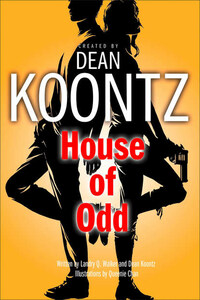HarperCollinsPublishers
1 London Bridge Street
London SE1 9GF
www.harpercollins.co.uk
First published in Great Britain by HarperCollinsPublishers 2000
Copyright © John Gordon Davis 2000
Cover photograph © Shutterstock.com
Cover layout design © HarperCollinsPublishers
John Gordon Davis asserts the moral right to be identified as the author of this work
A catalogue record for this book is available from the British Library
This novel is entirely a work of fiction. The names, characters and incidents portrayed in it are the work of the author’s imagination. Any resemblance to actual persons, living or dead, events or localities is entirely coincidental.
All rights reserved under International and Pan-American Copyright Conventions. By payment of the required fees, you have been granted the nonexclusive, nontransferable right to access and read the text of this e-book on-screen. No part of this text may be reproduced, transmitted, downloaded, decompiled, reverse-engineered, or stored in or introduced into any information storage and retrieval system, in any form or by any means, whether electronic or mechanical, now known or hereafter invented, without the express written permission of HarperCollins e-books.
HarperCollinsPublishers has made every reasonable effort to ensure that any picture content and written content in this ebook has been included or removed in accordance with the contractual and technological constraints in operation at the time of publication.
Source ISBN: 9780007574407
Ebook Edition © DECEMBER 2014 ISBN: 9780008119348
Version: 2014-12-15
Andy Meyer, the junior officer on watch in the US Coast Guard station, remembered the yacht dropping anchor in the open channel of St Thomas, American Virgin Islands, in the small hours of that September morning in 1996 because it was not flying a flag. Four hours later, just before dawn, he noticed the yacht steaming out of the channel towards the nearby British Virgin Islands. Meyer hoped the skipper knew what he was doing – there were rocky waters ahead, best navigated in daylight, and technically he should have registered his arrival in American waters before departing. Meyer decided to make an entry in the Log, just to show he had done some work.
The sun was up when the yacht, Rosemary, anchored in the big open bay of Road Town, Tortola, the sleepy little capital of the nearby British Virgin Islands, but it is established by Immigration Department records that it was not until three o’clock that afternoon that the skipper, Sinclair Jonathan Harker, reported his arrival. He appeared, according to Mrs Doris Johnston, the chief immigration officer, to have been drinking; he was nervous, unshaven, wild-looking. He gave his last port of call as Nassau, Bahamas, and produced a crew list certifying that only he and his wife Josephine were aboard. He presented Josephine’s passport, along with his own, but Mrs Johnston told him that Josephine had to report in person. Mrs Johnston then demanded his Nassau port clearance certificate: Harker said he had not known he needed such a document before leaving the Bahamas. Mrs Johnston told him in no uncertain terms that he would have to return to Nassau to get it.
Harker then left Mrs Johnston’s indignant presence, went to the American Express office and telephoned Josephine’s insurance company in New York advising them of her death and asking what procedures he had to follow. He then sent a fax to her attorney, asking the same question, then another to her father, Denys Valentine, in Boston, reporting his daughter’s death, saying he would telephone as soon as he had composed himself. Then, instead of heading to the police station to report her death, he returned to his boat and proceeded to drink a bottle of rum.
At noon the next day a police party went out to his boat, alerted by Mrs Doris Johnston who had complained to them that Josephine Harker still had not reported to Immigration Department. The Commissioner of Police, Joshua Humphrey, found Harker sitting in the saloon of his yacht, ashen, starting on a new bottle of rum. Harker looked up and said:
‘I want to report a person missing on the high seas …
Joshua Humphrey, portly, black, with forty years’ experience, suspected immediately that Sinclair Jonathan Harker was guilty as












